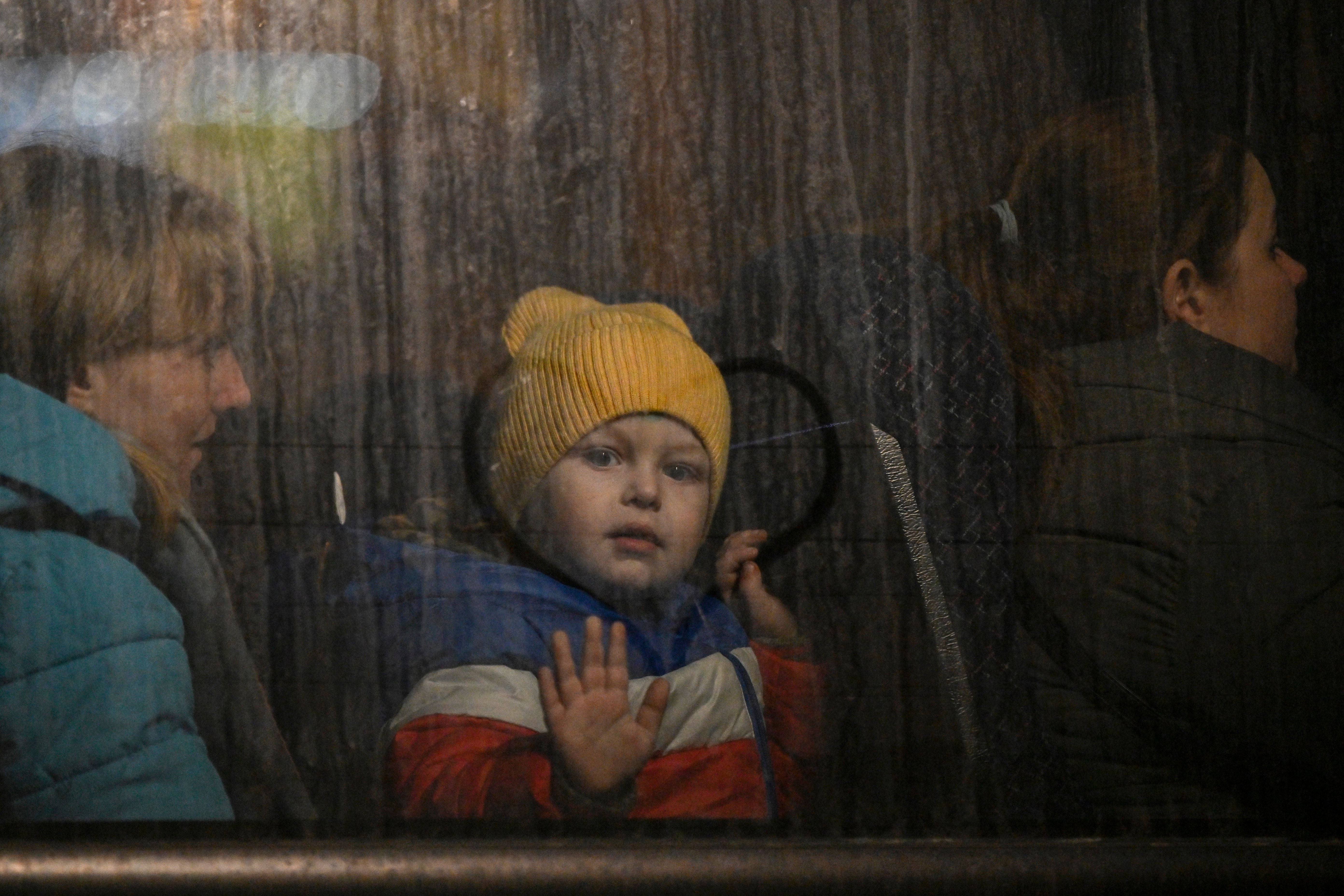Ireland has embraced Ukrainian refugees – why not do the same for everyone else?
While there is no question that my homeland is doing right by the people of Ukraine, such support should be extended to every man, woman, and child fleeing war and persecution from every corner of the world, writes Alice Murphy


Ireland, the Land of a Hundred Thousand Welcomes, has been lauded the world over for opening its arms to desperate Ukrainians fleeing the murderous mania of Vladimir Putin.
Famed for their friendliness and natural inclination for craic, the Irish trade on a reputation for being one of the most hospitable countries on Earth, greeting strangers with smiles and a willingness to help however, whenever we can.
The beaming faces of thousands of Ukrainians safe and well in scenic spots across the Republic strengthen this stereotype in the purest way possible. But a peak under the rug of the state’s ignoble asylum seeker policy suggests such warm céad míle fáiltes are exclusively reserved for a certain kind of people.
Widely considered as modern Ireland’s greatest shame, Direct Provision was established in 1999 as a short-term solution to a sharp uptick in the influx of people seeking asylum in the country.
In most European countries, people in need of international protection receive financial assistance which enables them to live in that country while their application is pending. Under Direct Provision, however, this is not the case.
Ireland’s accommodation system shunts vulnerable arrivals into Soviet-esque centres in remote areas, where they are served set meals in a canteen at fixed times and handed the princely sum of €38.80 (£29) per adult and €29.80 (£22) per child each week. That’s a maximum “allowance” of just €5.50 (£4) a day.
The bulk of these glorified prisons were built in rural backwaters, with limited transport links and little to no support services. Each one has a chequered past; a convent in Waterford, a Midlands trailer park, abandoned Celtic-Tiger-era hotels.
Residents who come from far-flung lands – from North Africa and the Middle East, to southeast Asia and the Balkans – live in communal settings, with single adults sharing rooms with up to eight others of different backgrounds and nationalities. Some centres house only men, some only women. Many have no shared language and many have lived through extreme trauma, having fled torture, trafficking, and tragic conflict.
Before being granted such luxuries, those unlucky enough to find themselves at the mercy of this framework can spend up to six months in cramped city hotel rooms, where they must wait to receive a coveted temporary residence certificate, a lifeline without which asylum seekers cannot claim expenses or obtain a social security number. All they are left with is time.
Arguably unique in its psychological cruelty, Direct Provision prevents people from living in the community, thereby stripping them of their independence and any ability to integrate into Irish society. Until 2018, Direct Provision residents had no right to work. Even now, they must wait six months and that right remains limited.
There are currently 8,205 people – 2,658 of them children – in DP and emergency accommodation facilities across Ireland, according to the latest data. The average length of stay is 24 months, but some languish in the system for as long as 12 years.
The malevolent undertones of Direct Provision are more pronounced by the fact that big business is making bank on the existence of such a system. The majority of centres are managed by private, for-profit contractors on behalf of the State. Aramark, a US catering conglomerate that runs some of Ireland’s most iconic cafes and turned over a cool $14.6bn in 2017, is one of them.
Years of criticism from international organisations and tireless activism from human rights groups including the Movement of Asylum Seekers in Ireland (MASI) has led to small-scale improvements, with asylum seekers now entitled to a driving licence, broader access to education, and a bank account in their own name.
The Irish government last year caved to pressure and pledged to end Direct Provision by 2024, but fears are now mounting that myopia regarding the plight of Ukrainians could scupper that goal.
To keep up to speed with all the latest opinions and comment sign up to our free weekly Voices newsletter by clicking here
Just as the Dail granted Ukrainians the right to live and work as EU citizens in Ireland, the body of an elderly woman, believed to be from Zimbabwe, was found in a Cork Direct Provision centre. She had been dead for several days before anyone noticed.
Ireland expects to have welcomed 20,000 Ukrainian refugees into the State by the end of this month, which will be five weeks since Russia’s invasion began. There they can work, study, and live just as any citizen of the Republic is entitled to live.
While there is no question that my homeland is doing right by the people of Ukraine, such support should be extended to every man, woman, and child fleeing war and persecution from every corner of the world. It should not be conditional on geography, geopolitics, or how “European” they may appear to be.






Join our commenting forum
Join thought-provoking conversations, follow other Independent readers and see their replies
Comments